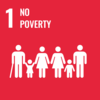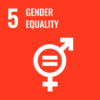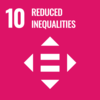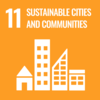Glasgow Caledonian University’s (GCU) Mary Robinson Centre for Climate Justice (MRCCJ) is focused on the disproportionate impacts of climate change on particular groups in society. We raise awareness of how inequalities affect the ability of the poorest and most vulnerable to adapt to climate change impacts, and work with local communities to co-produce climate knowledge and build resilience.
Initially established through a partnership with the Mary Robinson Foundation, we address the overarching objective of the United Nations Sustainable Development Goals to ‘Leave no one behind’.
The specific project detailed in this application has investigated the impacts of climate change on gender-based violence and mental health. The project put the spotlight on the lived experiences of rural women in Malawi and delivered evidence directly to policymakers to inform future policy at the national level that would help address a growing mental health and gender-based violence crisis in the studied areas.
A remarkable piece of research linking three key areas for this Green Gown Award. This innovative initiative clearly highlights gender equity and given the follow up work with the community and support organisations, has supported the women well whilst providing research evidence. This highlights a globally significant issue which deserves the attention of governments and institutions everywhere.
“We are delighted to win this Award in recognition of our purposeful research on gender-based violence and mental health in women impacted by climate change. This research listens to the voices of those disproportionately affected by global warming, and demonstrates the power of working with communities to solve societal challenges.”
Professor Pamela Gillies CBE FRSE, Principal and Vice Chancellor



